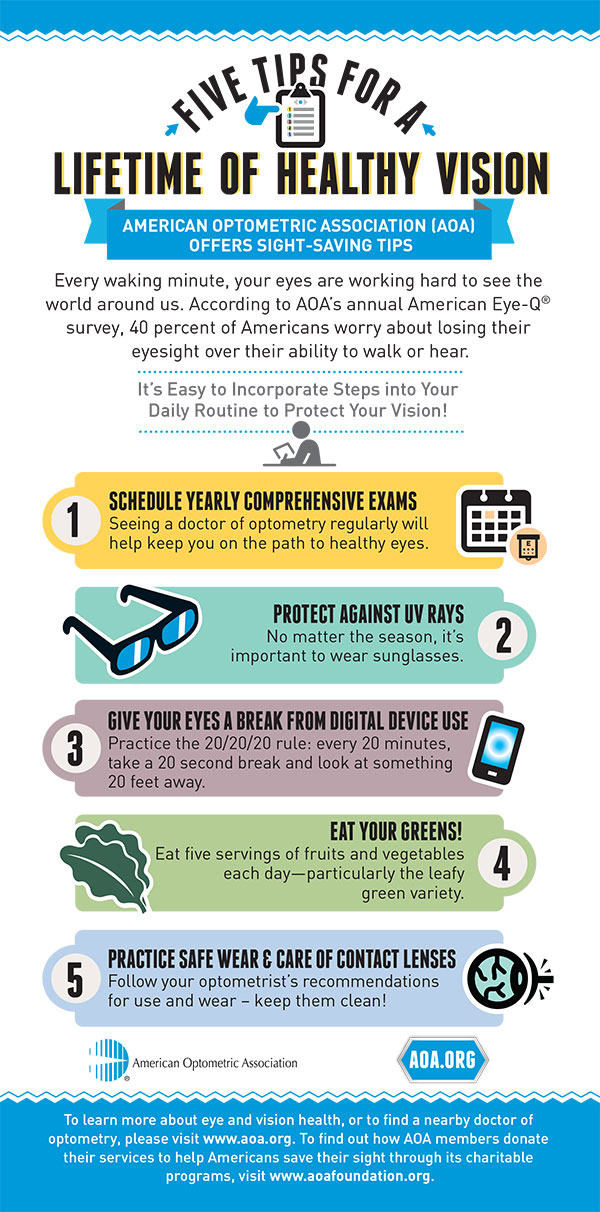Vision health is a paramount aspect of overall well-being that often receives insufficient attention in our daily lives. As society becomes increasingly reliant on digital devices, the need for proactive measures to sustain and improve vision health grows ever more critical. Establishing daily habits that bolster ocular health can lead to significant improvements in clarity, comfort, and overall eye performance.
In the following discourse, various practices will be elucidated, emphasizing the importance of nutrition, environmental factors, and comprehensive eye care strategies. The ultimate objective is to furnish individuals with a holistic understanding of how to cultivate and maintain optimal vision health through daily habits.
Nutrition: The Cornerstone of Vision Health
When contemplating vision health, one must first address the profound impact diet has on ocular function. A nutrient-rich diet provides essential building blocks for maintaining healthy eyes and preventing degenerative conditions.
Antioxidant-Rich Foods
Foods rich in antioxidants, particularly vitamins C and E, are crucial for eye health. These antioxidants combat oxidative stress, which can lead to cataracts and age-related macular degeneration. Citrus fruits, berries, nuts, and leafy greens are exemplary choices. They not only enhance overall health but serve a specific role in protecting retinal cells.
Omega-3 Fatty Acids
Integrating omega-3 fatty acids into the diet can significantly benefit eye health. Found in fatty fish such as salmon, mackerel, and sardines, these essential fatty acids help maintain the structural integrity of cell membranes in the retina and reduce symptoms of dry eye syndrome. For those who prefer plant-based sources, walnuts and flaxseeds offer an excellent alternative.
Hydration: The Often-Overlooked Habit
While ample attention is given to dietary choices, hydration frequently emerges as a neglected determinant of eye health. The link between hydration and ocular lubrication is vital; insufficient fluid intake can exacerbate dryness and discomfort. Water consumption should be prioritized throughout the day to maintain optimal moisture levels within the ocular surface.
Environmental Factors: Crafting a Healthy Visual Space
The environment in which one operates can substantially influence vision health. Several daily practices can be implemented to create a more conducive atmosphere for eye care.
Proper Lighting and Ergonomics
Utilizing appropriate lighting is critical when engaging in activities such as reading, using computers, or studying. Natural light is ideal, but when that is not possible, ambient lighting should be used to reduce glare and strain. Additionally, the ergonomics of a workspace significantly affect comfort levels. Ensuring that screens are positioned at eye level and at an adequate distance can alleviate strain on the neck and eyes, allowing for prolonged focus.
The 20-20-20 Rule
Implementing the 20-20-20 rule can serve to mitigate digital eye strain. After 20 minutes of screen time, users should take a 20-second break to gaze at something 20 feet away. This practice facilitates the accommodation of the eye and reduces fatigue. Alongside this strategy, blinking frequently and consciously can enhance moisture retention on the ocular surface, combating dryness associated with prolonged screen use.
Regular Eye Exams: The Proactive Approach
Routine eye examinations are indispensable in maintaining vision health. Early detection of issues such as glaucoma or diabetic retinopathy can lead to more effective treatment outcomes. Comprehensive eye exams allow for the assessment of not just vision acuity, but also overall eye health. It is advisable for individuals to have a thorough examination every one to two years, or more frequently if prescribed by an eye care professional.
Comprehensive Eye Care: Beyond Routine Check-Ups
Recognizing the importance of beyond just sporadic eye exams, individuals should adopt a multifaceted approach to eye care that encompasses varying aspects of daily life.
Protective Eyewear
Engaging in outdoor activities without adequate eye protection can expose individuals to harmful ultraviolet (UV) rays. Prolonged exposure to the sun can lead to the development of cataracts and other eye disorders. Therefore, donning sunglasses with UV protection is imperative, even on overcast days. Those who partake in activities involving high levels of dust or debris, such as construction work or certain sports, should consider safety goggles to protect the eyes from potential injury.
Screen Time Management
In our technologically driven culture, screen time is an inevitable part of life. However, managing this exposure is essential to avoid long-term repercussions on vision health. Setting limits for recreational screen use, especially for children, can help maintain ocular comfort. Engaging in non-screen-related activities, such as outdoor sports or reading printed materials, can provide a necessary counterbalance to digital interactions.
Eradicating Harmful Habits
Certain habits can undermine vision health, necessitating a conscientious approach to daily routines. Smoking, for instance, is a significant risk factor for developing age-related macular degeneration, cataracts, and optic nerve damage. Quitting smoking can substantially enhance not only overall health but also the integrity of the ocular system. Moreover, excessive alcohol consumption has been linked to potential visual impairments, reiterating the need for moderation and mindfulness regarding lifestyle choices.
Mindfulness and Eye Exercises: A Holistic Approach
Mindfulness and eye exercises have gained recognition as supportive practices for enhancing vision health. Simple techniques such as eye rolling or shifting focus can help alleviate tension and promote relaxation in the ocular muscles.
Practicing Mindfulness
Mindfulness practices like meditation can also support eye health indirectly by reducing stress. Elevated stress levels can contribute to eye strain and discomfort, making it paramount to integrate relaxation techniques into daily life. Consideration of mental well-being, alongside physical factors, underscores the significance of a holistic approach to vision health.
Conclusion: A Commitment to Lifelong Vision Health
In summary, improving vision health requires a multifaceted approach anchored in daily habits that encompass nutrition, environmental considerations, and proactive care. By incorporating nutrient-dense foods, creating an ergonomic workspace, and managing screen time, individuals can bolster ocular health effectively. Furthermore, the integration of mindfulness and protective measures, such as regular eye exams and appropriate eyewear, enhances one’s commitment to long-term vision wellness.
Adopting these habits is not merely a series of recommendations but rather a lifestyle choice that can yield profound benefits. By prioritizing vision health today, individuals can look forward to a clearer, more vibrant tomorrow.
